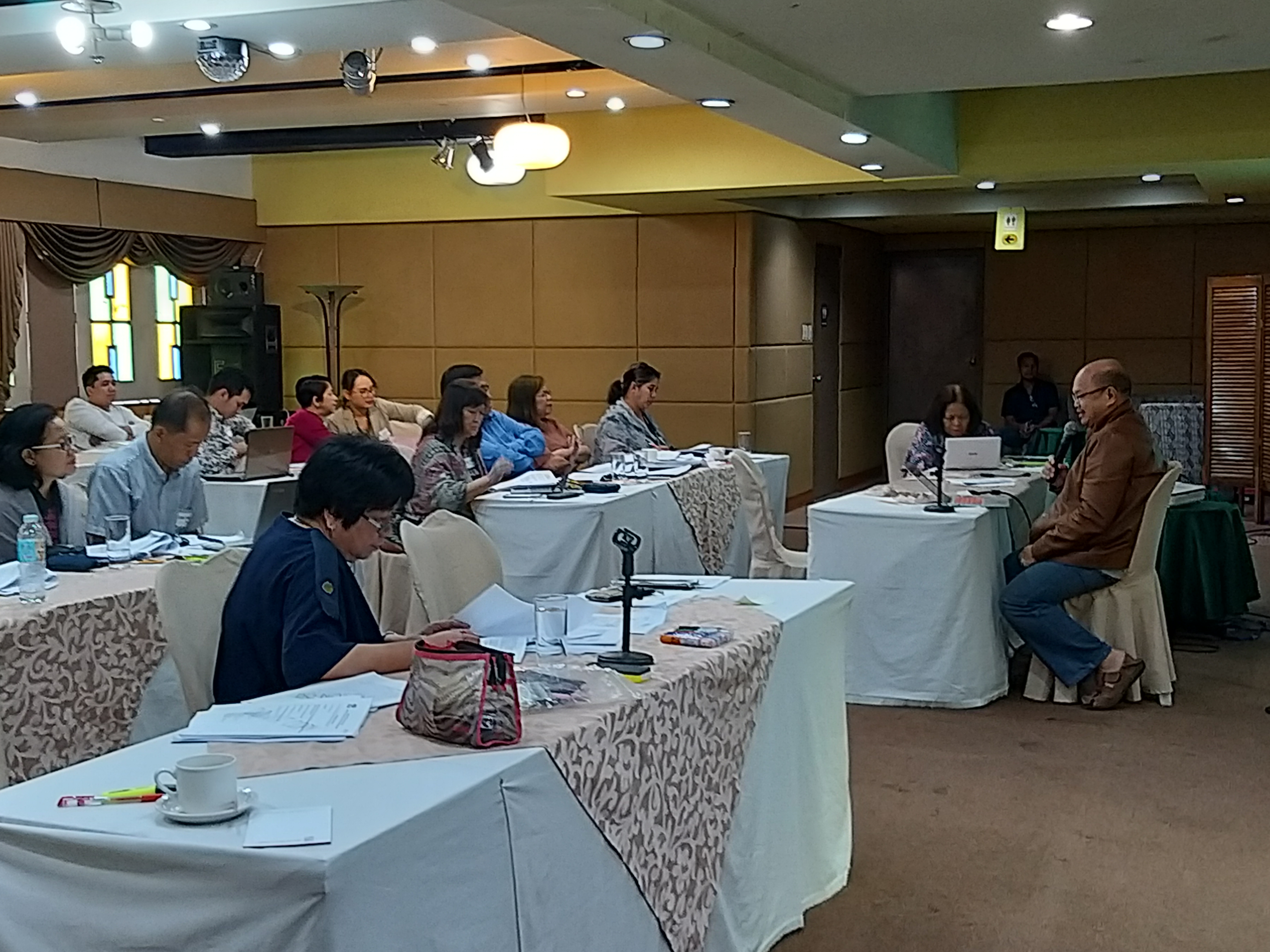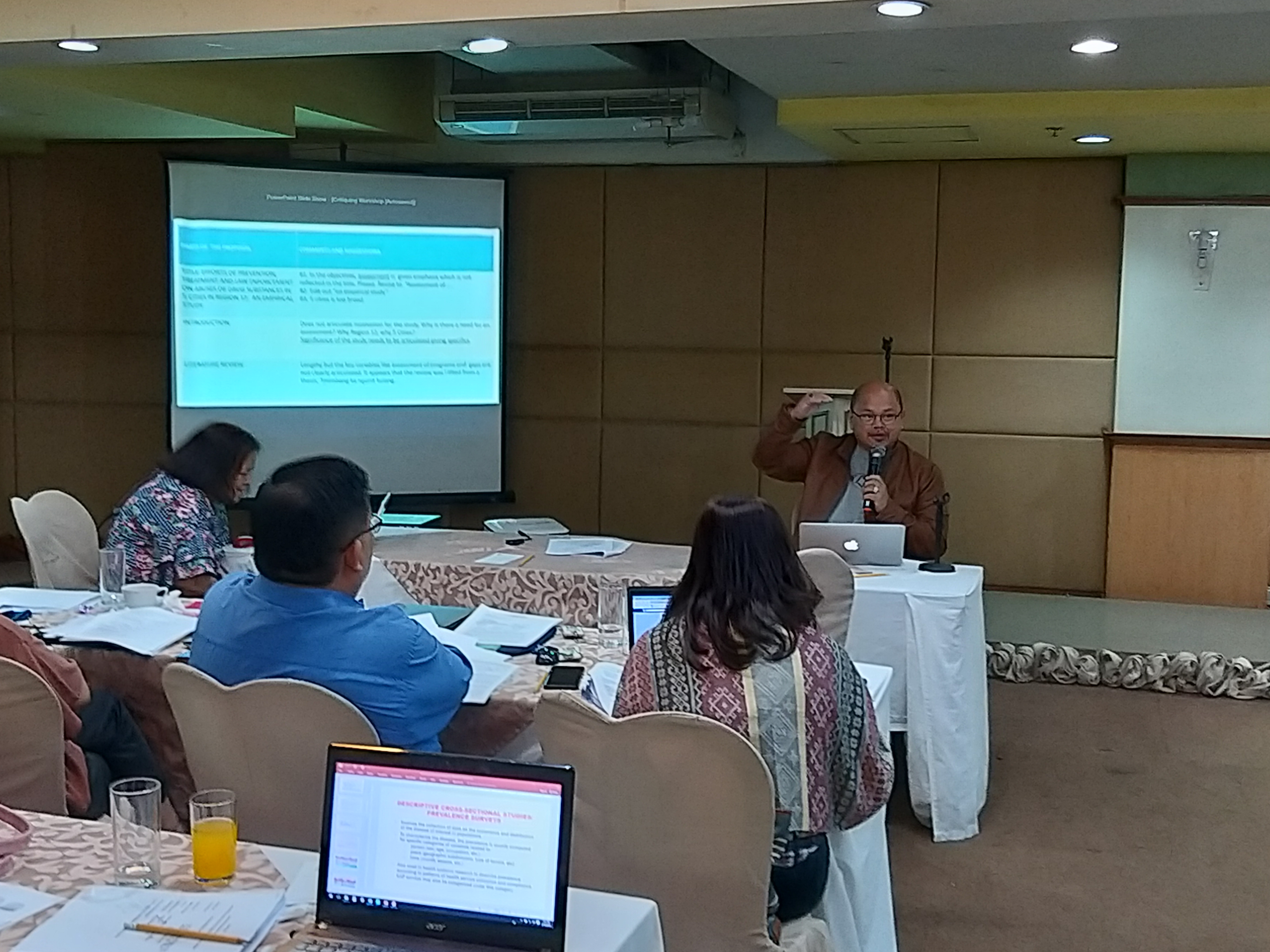PCHRD organizes Research Proposal Critiquing Workshop
The Philippine Council for Health Research and Development (PCHRD), in partnership with the “Development of BRM Modules” project team, led by Dr. Ophelia Mendoza, organized a “Research Proposal Critiquing Workshop” last 14 March 2019 at the Manila Manor Hotel. It is a follow-up activity of “Training of Trainers for Basic Research Methods (BRM) Training” that was conducted by Symmetrix Research Consultancy, Co. last 4-6 December 2018 at Marco Polo in Davao City.

The workshop was organized as part of the council’s initiative in harmonizing and strengthening the review capacity of all the Regions to ensure efficiency of the review process and quality of the proposals endorsed to the PCHRD for funding, the said workshop primarily aims to enhance the capacity of the participants in critiquing research proposals and in writing a critique report.

Present during the workshop was the Capacity Building Committee Chair of the Zamboanga Consortium for Health Research and Development and Executive Director for Research and Extension of the Zamboanga State College of Marine Science and Technology, Dr. Servando D. Halili.




